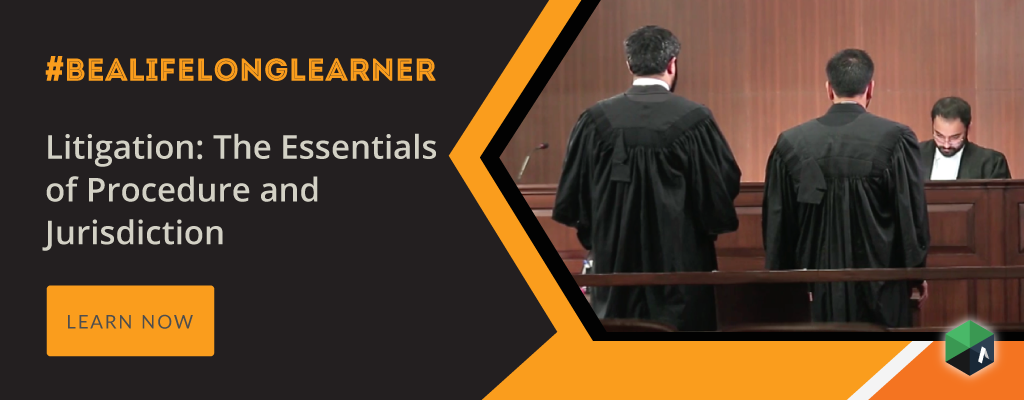The PMLA is a harsh statute — Needs a well thought out and clear defence
The Prevention of Money Laundering Act, 2002 (“PMLA”) criminalises “money laundering”, an offence defined in Section 3 to include many activities involved with the “proceeds of crime”. It is a harsh statute for many reasons.Wide powers of search and seizureThe PMLA has special rules of procedure and evidence (as opposed to the general criminal law of the Code of Criminal Procedure, 1973 (“CrPC”)), which are meant to aid in the investigation and prosecution of offences under it. Since it deals with economic offences, investigative agencies have powers to facilitate their easy access to records and to record evidence.

These powers are exercised by a class of officers of the Enforcement Directorate. These officers are not considered police officers. As such, many of the safeguards present in the CrPC regarding search, seizure, and interrogation are not available under the PMLA.Difficulty of getting bailFor a defence counsel, the first concern at the initiation of a case against a client, is the threat of arrest and should that materalise, the possibility of bail. When it comes to getting an order of bail, it is one of the tougher legislations. Anticipatory bail is even more difficult.However, with the recent judgment of the Supreme Court in Nikesh Tarachand Shah v. Union of India and Another in W.P. (Crl) No. 67/2017, it is more possible to obtain bail in PMLA cases. Through this judgment, the Supreme Court struck down Section 45(1) of the PMLA as unconstitutional. This section mandated that no bail ought to be granted in cases under the PMLA until and unless the public prosecutor has been given an opportunity to oppose the bail and where the public prosecutor opposes the application for bail, it should not be granted unless there “are reasonable grounds for believing that the accused is not guilty of such offence, and that he is not likely to commit any offence while on bail.” With this twin test for bail now struck down, it is expected that the grant of bail should become more routine.Statements made to officers are admissible in evidenceThe rules of evidence under the Prevention of Money Laundering Act differ from regular criminal law in one crucial aspect. Under the CrPC, statements recorded by a police officer are not admissible, unless a part of that statement has led to the discovery of a material fact. The PMLA however empowers some officers to record statements that are admissible in evidence. This can affect the course of a trial.Section 50 (2) empowers some officers to summon witnesses to give evidence or to produce documents. Section 50(3) states that all such witnesses “shall be bound to state the truth upon any subject respecting which they are examined or make statements.” In contrast, under the scheme of ‘examination’ of witnesses by the police under Sections 161 and Section 162 of the CrPC, any statement recorded by the police cannot be relied on in court for any purpose apart from contradicting the witness. In fact, Section 162 of the Code of Criminal Procedure incorporates a prohibition against any such statement to the police being signed by the witness.Confessions may not be necessary for conviction under the PMLA but investigative agencies like having confessions under their belt during the trial. Also, in PMLA cases, confessions provide a safety net for the prosecution in case other evidence is rejected on technical grounds.Prosecution agencies often want to use statements recorded under the PMLA in other cases. For instance, an arms dealer was discharged from proceedings under the PMLA, but the prosecution in his trial under the Official Secrets Act wants to use his statement under the PMLA just because some of the accused are common.This sometimes creates an apprehension that a prosecution under the PMLA may have been launched just to get over the bar against recording of confessions by the police.

This problem is consistent with most statutes where such confessions to the police have been made admissible. Often in these cases, the confession will be the only evidence adduced by the police. Indian investigative agencies have a bad habit of relying on these ‘confessions’, which are often disbelieved for contradicting the other evidence on record. The tendency to not investigate further invariably leads to acquittals after the initial stages where such “confessions” may be useful for the framing charges and to secure denial of bail.There is a reason for these deviations from the ordinary criminal process regarding recording of witness statements by the investigating authority – the nature of offences. In an ordinary criminal trial involving, say, harm to the body or harm to property (such as theft or cheating), witness testimony normally forms the crux of the prosecution case. This is not so in a case under the PMLA. Prosecution for an economic offence under a special law will necessarily rely, more than on testimony of witnesses or circumstantial evidence, on records of financial transactions and the recovery of proceeds in the form of cash or kind. Witness testimony would at best be corroborative. The statute also assumes that when such power is available only to senior officers, it will be utilised responsibly.Arrest, but with careRegarding arrest, Section 65 of the PMLA states that the provisions of the CrPC are applicable to arrest under the PMLA too. The PMLA however, perhaps mindful of the wide powers it provides to the ED, also includes a couple of provisions to protect people from unfair and unnecessary arrest. Section 63 of the Act penalises the act of “wilfully and maliciously giving false information and so causing an arrest or a search to be made under this Act”. While the Indian Penal Code penalises furnishing or fabricating false evidence, there really is no analogous provision in the IPC that penalises vexatious arrest or search. Section 62 of the PMLA also makes vexatious search and arrest (an arrest or seizure is deemed to be vexatious when reasons for such arrest or seizure are not recorded in writing) by an official under this Act into a criminal offence.This means that unlike the police, every instance where an ED official initiates a search or an arrest under this Act, they can only do so after recording their reasons for doing so. This is clearly because an official under this Act enjoys far wider powers of search and seizure than a regular police officer. The more pervasive the power, the higher the penalty for abuse of the power. However, wrongful arrest is not something that officials under this Act are regularly prosecuted for. This provision remains more of a paper tiger.Presumption of intentLastly, one essential feature of the PMLA which sets it apart from the general scheme of the CrPC and the IPC is the introduction of a presumption which effectively reverses the burden of proof.Section 24 of the Act states that “a) in the case of a person charged with the offence of money laundering under section 3, the Authority or Court shall, unless the contrary is proved, presume that such proceeds of crime are involved in money laundering; and b) in the case of any other person the Authority or Court, may presume that such proceeds of crime are involved in money-laundering.”As such, the burden of proof regarding the use of any ‘proceeds of crime’ is essentially shifted. All the prosecution has to prove is that the source of the funds is linked to a crime. Once that is done, the prosecution does not need to prove that the intention of the person being prosecuted was to ‘launder’ these proceeds. To explain this through a simple example, a person who has been given a lakh by a friend who received this money as a bribe will be presumed guilty of money-laundering. The prosecution need not prove any intent on part of the receiver. If the receiver claims that she was not aware of the source of funds or that the funds were for a bona fide purpose, it is up to the receiver to prove these facts. Usually, in a criminal trial, the burden is on the prosecution to prove intent. Not so, under this Act.
This presumption is in addition to the presumption under Section 22, which states that where any property or records are seized from any person under this Act, it shall be presumed that such person is the owner of such property or records. This is again a special rule that is not otherwise available.Trials under the PMLA are challenging. These trials happen before Special Judges and are prosecuted by an investigative agency that has the time and resources to present a good case. The judiciary also takes a more serious view on bail.As a statute that is quite technical in its requirements regarding search and seizure, it helps to be aware of the minutiae of the Act as well as the latest developments in law. Statutes that impose a harsher procedure often compensate by being particular about the procedure adopted for the application of the harsher procedure. For example, it is only a certain category of officers who are authorised to impose the harsher provisions of this Act.A proceeding under this Act therefore, requires deft handling. With the possibility of attachment of assets, a clear defence strategy is crucial from the beginning. Mere denial is usually not enough to get relief. A cogent explanation for the money recovered must be provided. Recently, while denying bail to a lawyer from whose house large sums of money were recovered, the Delhi High Court specifically observed that there was no explanation for the source of the money recovered.Only a well thought out and clear defence works in such cases as opposed to the more haphazard methods that are sometimes adopted by counsel in prosecutions under regular criminal law.

